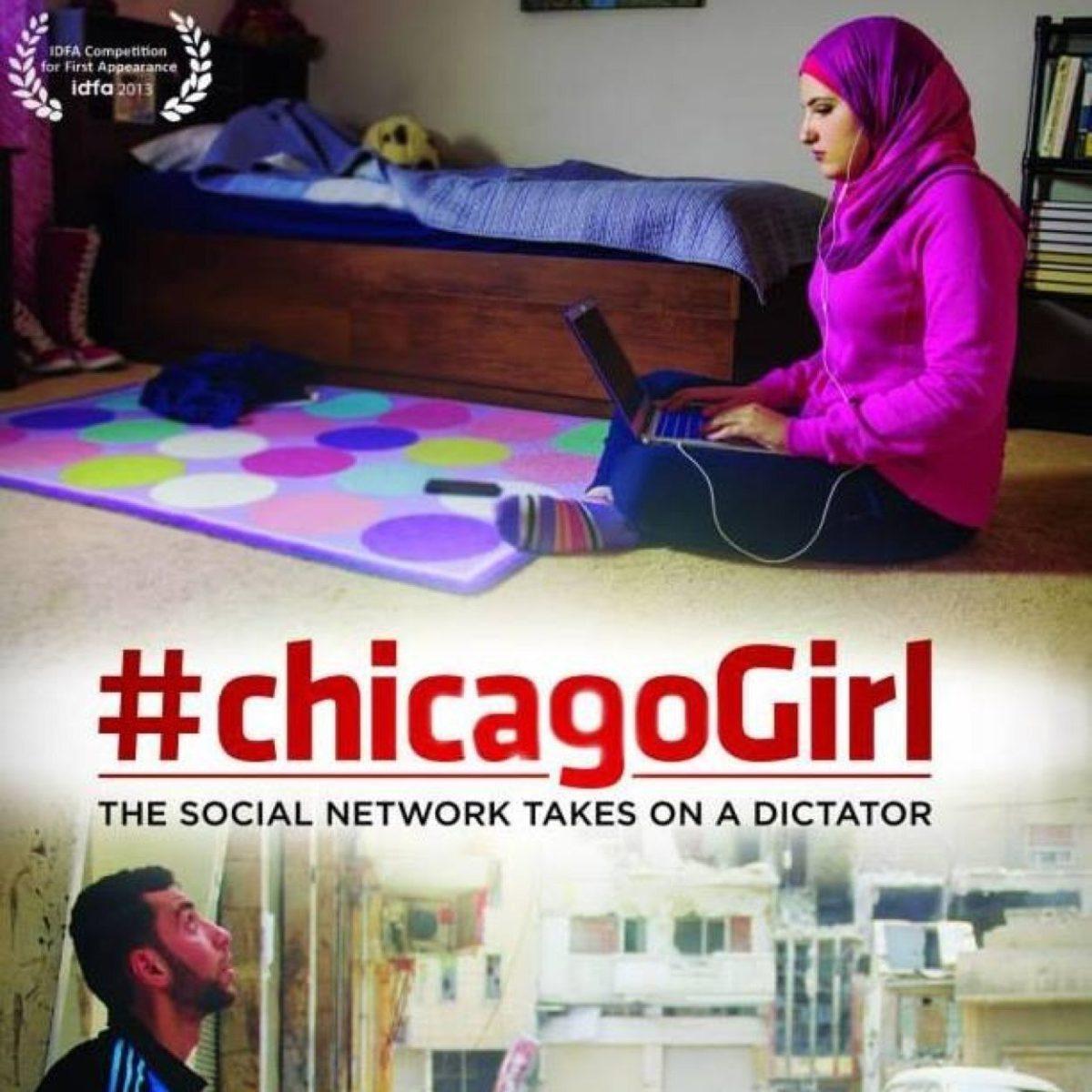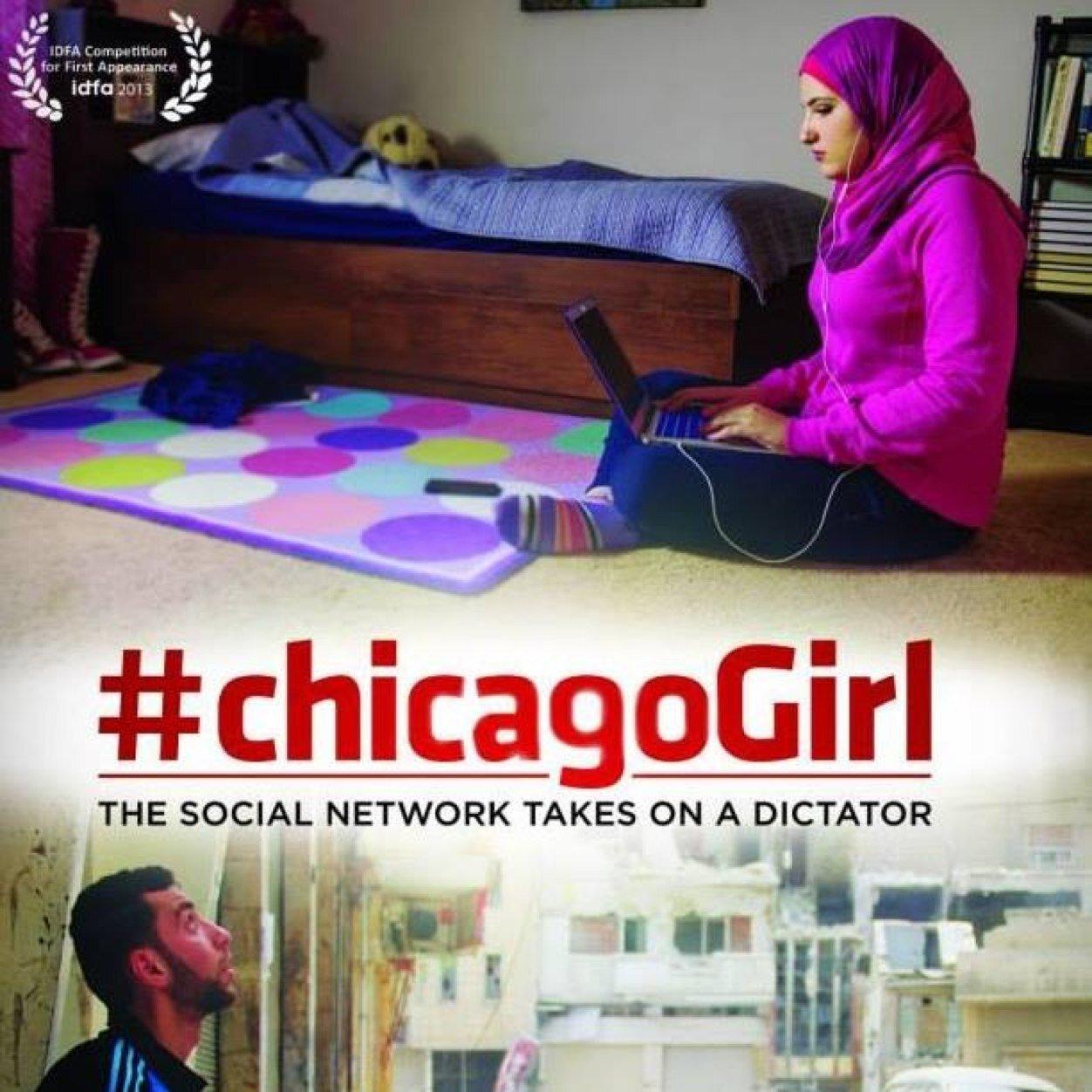ORANGE spoke to director of “#chicagoGirl,” Joe Piscatella, about what it was like to work with late activist/cinematographer Bassel Shahade and 19 year-old political activist, Ala’a Basatneh.
Interview by Helen Fernandez
“#chicagoGirl” is an informative documentary on the crisis in Syria and the way Basatneh used social media from her home in Chicago to globally bring people together to protest the Syrian regime.
https://vimeo.com/79270867
ORANGE: This is your first documentary, correct? What did you enjoy most about this form of storytelling?
PISCATELLA: Yes, this is my first documentary. My “day job” is that I’m a screenwriter who has worked on films for Disney, Dreamworks Animation and Sony Animation. With a narrative film, the screenplay provides a blueprint for the movie that will be made. With documentary, I discovered that the story you set out to get isn’t always the story that you end up with on film. In narratives and features, you can write yourself out of a story problem. In documentary film, you’ve got to build a story with the footage you shot.
ORANGE: What was your original goal with “#chicagoGirl?” How did it change over the course of production?
PISCATELLA: The original goal with “#ChicagoGirl” was to make a film about technology in revolution. But we soon found that while the technology was interesting, the stories of the people using that technology were far more powerful.
ORANGE: How long was the production process for “#chicagoGirl?” And where all did you travel to to get the shots we see in the film?
PISCATELLA: From conception to finished film it took about two and a half years, which is actually fairly quick in the documentary world. The footage in “#chicagoGirl” is from a variety of locations. I followed Ala’a in the U.S. while Bassel followed Aous in Damascus and the citizen journalists in Homs.
ORANGE: What was your first impression of Ala’a Basatneh? At what point did you realize you wanted her to be the main focus of the documentary?
PISCATELLA: I had read a small blurb in a newspaper about Ala’a getting a death threat on her Facebook wall. This was shortly after the revolutions in Tunisia and Egypt, and the media was mostly reporting on the power of social media. I was intrigued with Ala’a and her death threat because it demonstrated a darker side to all of this. Naturally, I found Ala’a on Facebook. We traded messages and got on the phone. I kept asking her about this death threat and finally she said, “Joe, you’re asking me all the wrong questions.” That’s when she told me that she was helping coordinate protests in Syria from her bedroom in Chicago. It was intriguing enough that my producer, Mark Rinehart, and I flew to Chicago two days later to meet her and her family. We watched her coordinate a protest. Mark and I immediately knew that Ala’a’s story was a very interesting way into our story.
ORANGE: What was it like working with Bassel Shahade? Did you know him before?
PISCATELLA: Producer Mark Rinehart and I had been trying to find a cameraman in Syria to tell that side of our story. Most of the cameramen we came across were students with handicams who had no experience. There was a professor at Syracuse who we were interested in using as a talking head. He recommended his former student, Bassel Shahade, who had already returned to Syria. Bassel and I connected over email and Skype, and immediately we just clicked. From the way he spoke about his camera gear to the short films he sent us links to, Mark and I knew Bassel was a real filmmaker. We also discovered that Bassel and Ala’a were part of the same social network and suddenly the pieces of the story began to fall into place. Bassel was amazing to work with. Over the 18 months we worked together, he was not only an amazing cameraman, but he became a good friend, as well.
ORANGE: You mention on the “#chicagoGirl” website that you had people help you smuggle hard drives and cameras. Who helped you? Did you ever lose any of the footage?
PISCATELLA: Bassel had friends in Lebanon and in the early part of the revolution he was able to travel there fairly easily. Our production was able to send equipment to Bassel in Lebanon. Bassel was also able to purchase a lot of the necessary specialty equipment in Lebanon and bring it back with him. While we do not go into this in the film, at one point Bassel was arrested for filming in Damascus (it was for another project Bassel was working on). He was detained for a day and released. After that, it became much more difficult for him to leave Syria.
ORANGE: Do you plan on directing more documentaries in the future? And if so, what themes/topics interest you?
PISCATELLA: I do plan on directing another documentary. I’m still circling a few ideas, but nothing concrete yet. What interests me are themes where ordinary people have to rise to the occasion to do something extraordinary.
“#chicagoGirl” will be screening at the Austin Film Fest on Saturday, October 25th, at the Highland Galaxy Theatre.












































